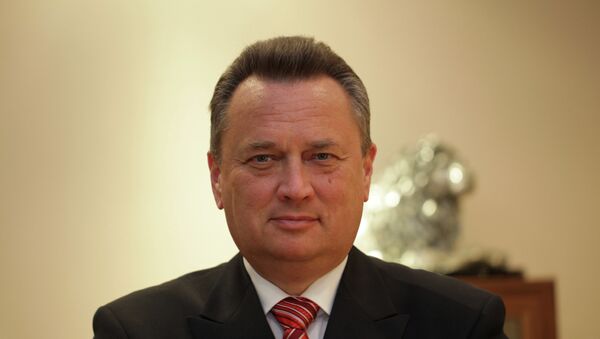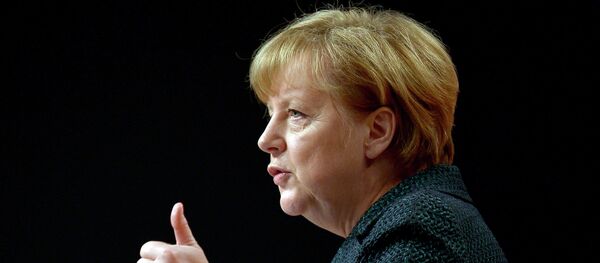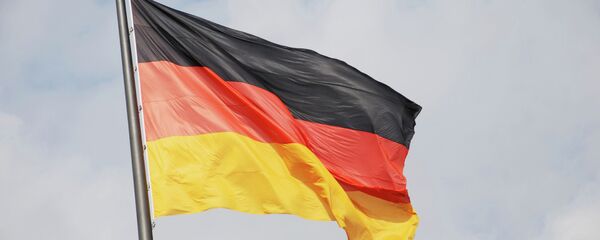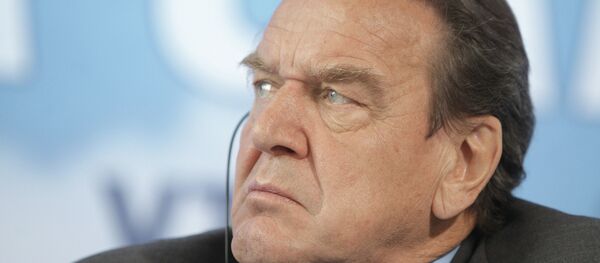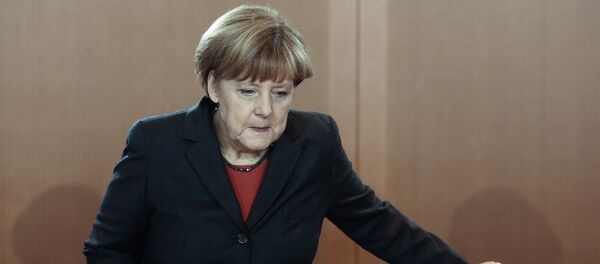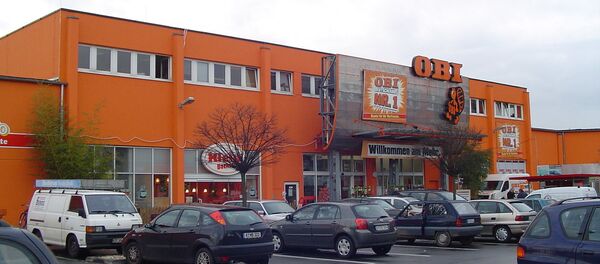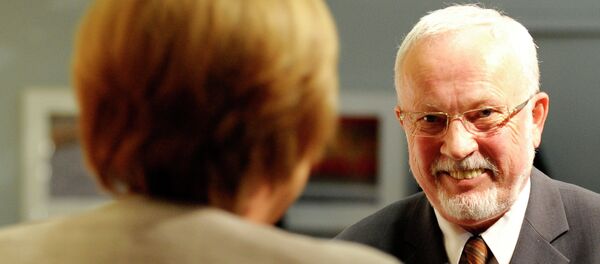"My feeling is that … our economic relations in certain spheres … have deteriorated," Zverev said. "As a person who has added a brick over the years… to the 'edifice' of economic cooperation, it hurts me to see what the impact of Western sanctions is doing to it. This needs to be changed."
Zverev, who heads the German-Russian Foreign Trade Office, said he did not expect any shift in the Western sanctions policy in the near future. He added that non-government organizations and other civil society institutions could break the ice in the dialogue between Russian and German governments, following the sanctions fallout.
The Trade Office had close ties with the Committee on Eastern European Economic Relations in Germany and the Verband der Russischen Wirtschaft in Deutschland, two prominent German business associations in Russia, Zverev said.
According to the Committee, there were more than 6,000 German companies with a business presence in Russia in 2013. It is estimated that EU sanctions could put up to 300,000 people out of work in Germany by the end of this year, Zverev warned.
Ernst-Jorg von Studnitz, a former German Ambassador to Russia, told Sputnik earlier in December that it was necessary for Brussels to "go back to moderation" in its relations with Moscow in order to de-escalate the economic pressure.
On July 31, the European Council adopted sanctions targeting Russia's most sensitive economic spheres – energy, defense and banking – over Moscow's stance on the Ukrainian conflict. Economic sanctions were preceded by several rounds of restrictions against Russian and Crimean officials and individuals that Brussels believed to have played a role in "destabilizing" Ukraine. Russia has denied these allegations.
Germany’s Hi-Tech Exports to Russia Shrink by Over10%
According to Zverev, who also heads the German-Russian Foreign Trade Office, statistics show that “since the sanctions [against Russia] came into effect, roughly 10 percent of applications by German high-tech equipment makers for export to the Russian Federation have been rejected”.
A ban by EU member countries in July outlawed the export of advanced technology to Russia, specifically dual-use and military equipment. Dual-use goods are those that have civilian and military applications.
“There are still no final numbers. We will have to analyze everything at the end of the year,” Zverev added.
The tech embargo has hit Germany the hardest of the 28 EU nations. In 2013, its exports to Russia accounted for 35 percent of total EU sales to the country, according to the Committee on Eastern European Economic Relations in Germany. Russia imported cars, machine tools and oil exploration technology, among other things.
On July 31, the European Council adopted sanctions that imposed an embargo on trading arms and dual-use technology with Russia. They also limited access to European capital markets for Russian state-owned banks, and restricted exports of oil production and exploration technology.
Half of Russian-German Trade Projects ‘Frozen’ Over Sanctions
"Half of the trade projects run by [Russia's] Foreign Trade Office, and project initiatives that we were planning to launch in 2015, have been frozen," Zverev, also the head of the German-Russian Foreign Trade Office, said.
According to the official, the countries were working on five "major projects" before the European Union slapped Russia with sanctions targeting sensitive economic spheres, like energy, defense and banking, as well as by rounds of restrictions against officials over Russia's alleged role in the Ukrainian crisis.
"This project was frozen since it had a military implication," Zverev stated.
Germany has been hit the hardest by the sanctions since it accounts for almost 35 percent of total EU exports to Russia. The Russian trade envoy also said that the German government had been forced to reject a tenth of high-tech export licenses by German manufacturers who wanted to trade with Russia after the EU ban on military and dual-use technology sales to the country.

